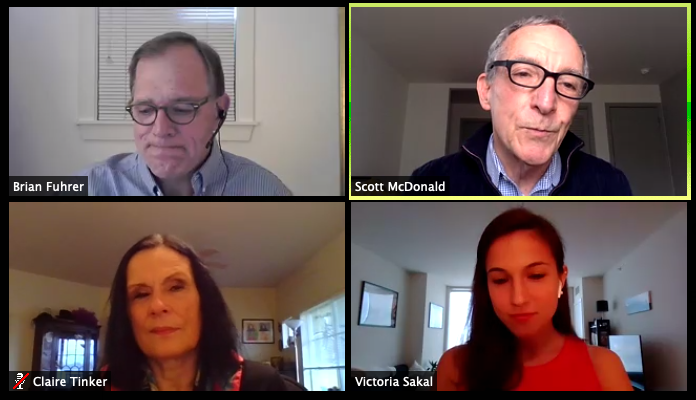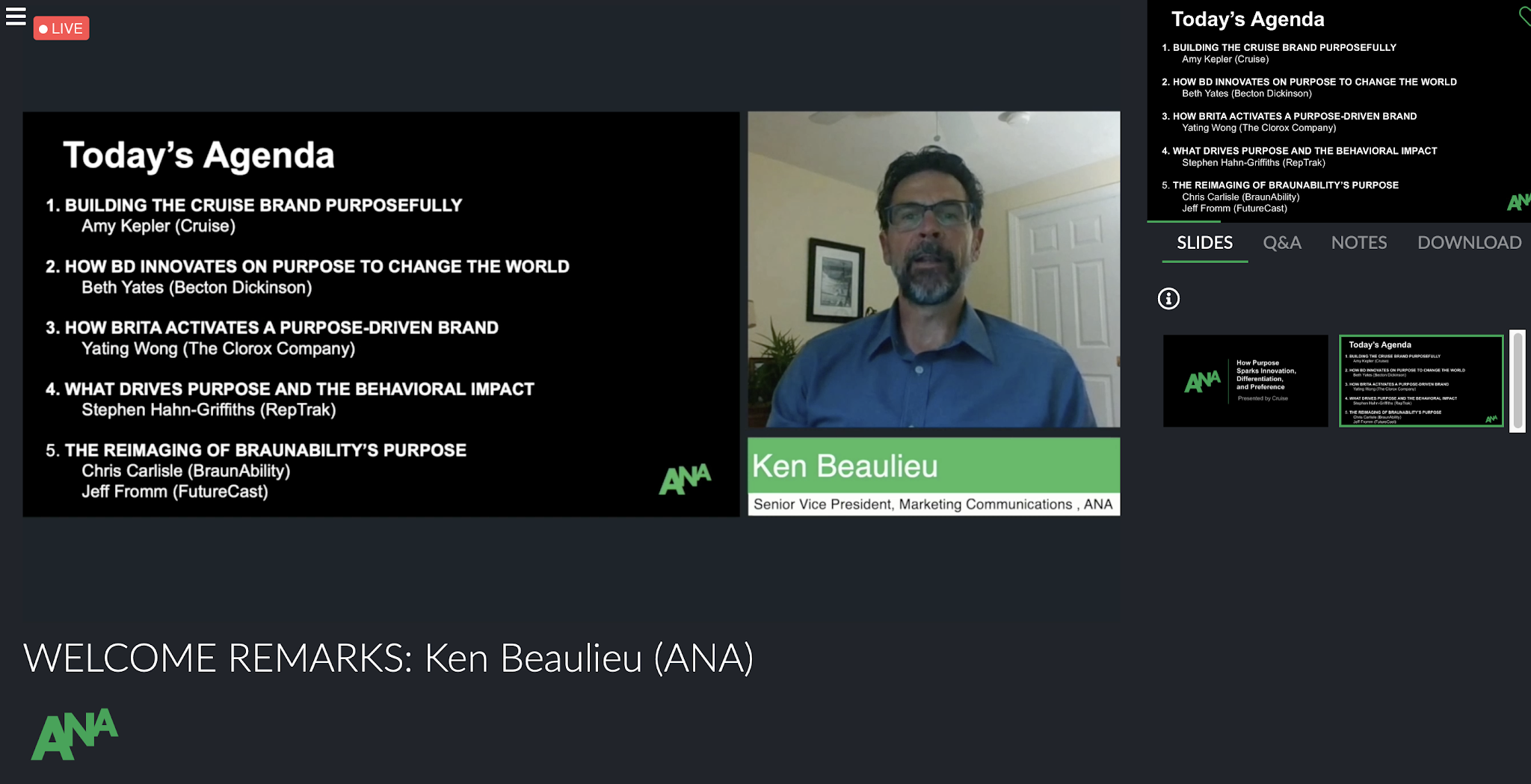ARF Town Hall brought marketing researchers to share their views on the possible change in consumer behaviors in the post-COVID world. | Roxie Xie
It’s been almost a month since COVID-19 made the America stay at home. A lot has changed in the past month: more virtual experiences are usurping the real life in-person experiences; E-commerce and home delivery have filled the void left by closed brick and mortar stores; streaming video has rounded up the audience from its cinema competition. The questions is, when the crisis passes, will people revert to their prior ways, or will some of the crisis-induced behaviors persist? How will this recovery differ from prior recoveries? These are the questions every marketers are asking. On April 23, The ARF brought researchers from various institutions to share their views on these questions throughout their Virtual Town Hall Series: What Behaviors Will Stay After the Crisis Passes.
The speaker Claire Tinker is the Principal from ESL Insights. She has a career in technology services where her responsibilities included operational support and utilizing metrics to improve operational performance. She shared her research on consumers’ attitudes towards their life during COVID-19, and gave markers advice in terms of the message to send out in the time of the pandemic:
- Don’t stop advertising, even if your content is less polished than usual.
- Consumers are looking for comfort and to be nurtured, serve them “comfort food” content.
- Address consumers’ health and safety, foster a sense of community, but be authentic.
- Promote a better future.
As Tinker is attending many art events online, she also shares her thoughts on what might stay after the crisis:
“the consumption of art forms could stay in video more, even after the pandemic, now that we’re more comfortable with new art forms.”
The speaker Victoria Sakal is the Managing Director of Brand Intelligence for Morning Consult, a global data intelligence company delivering insights on what people think in real time. She gave us insights on what’s currently on consumers’ minds: They want to make sure that companies are treating their employees well. Consumers at this time are more likely to buy form companies that provide safety to their employees.
Sakal also shared the results of a research Morning Consult conducted recently on consumer’s behavior changes during the pandemic. Apart from the more obvious one that “people are buying online more”, here are two other interesting findings regarding what will change in post-pandemic time, and what won’t change:
- People are buying a lot more snacks and junk food during the pandemic, but they expect to purchase it less after the pandemic.
- People are buying a lot more non-alcoholic beverages and healthy food during the pandemic, but they see that more as a necessity and will expect to purchase about the same level of it even after the pandemic.
Sakal also shared her thoughts on what change might stay after the crisis. “We’re all challenged to try new technologies,” Sakal said,
“Companies will continue to adopt new technologies, and employees will continue to rethink about what working from home means for them.”
The speaker Brian Fuhrer is the SVP, Product Strategy for Nielsen. He helps guide Nielsen’s National and cross-platform television audience measurement initiatives supporting major media clients, Digital companies, MSO/MVPDs and advertising agencies. He shared Nielsen’s recent research on consumers’ streaming and TV viewing behavioral change. Here are some insights from the research:
- During the crisis, viewers at home are increasing greatly.
- Content availability shifts, the biggest “disappointment” lies in the lack of lives sports programs.
- Enablement and sampling has been a big theme during the crisis: new devices are set up, it’s great time for introduction of new services and free trial of existing services. New shows and new seasons released during the pandemic are benefiting with huge viewership bumps in the first 10 day of the release.
New shows and new seasons released during the pandemic are benefiting with huge viewership bumps in the first 10 day of the release. Many people are re-watching some of their favorite old shows as “comfort food”: The Office, Grey’s Anatomy, etc. As things normalize, Fuhrer said,
“radio will go way back, and live sports will come right back.”
Speaker Linkedin:
Claire Tinker, Principal from ESL Insights:
https://www.linkedin.com/in/claire-tinker-18b7591/
Victoria Sakal, Managing Director of Brand Intelligence for Morning Consult:
https://www.linkedin.com/in/victoriasakal/
Brian Fuhrer, SVP, Product Strategy for Nielsen:
https://www.linkedin.com/in/brian-fuhrer-8a78122/



